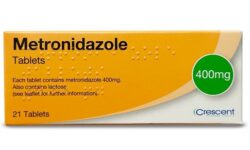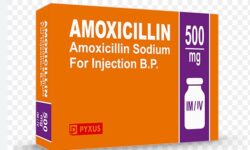Benefits of Eating Cottage Cheese
Are you looking for a nutrient-packed addition to your diet? Look no further than the incredible benefits of incorporating protein into your meals. Not only is protein essential for supporting muscle recovery and promoting weight management, but it also plays a vital role in boosting bone health. From athletes to fitness enthusiasts, everyone can benefit from the rich protein sources available. In this blog post, we will explore the various ways protein can enhance your overall well-being and how you can easily incorporate it into your daily meals.
Rich In Protein
Cottage cheese is known for its rich protein content, making it a popular choice for those looking to increase their protein intake. Protein is an essential macronutrient that plays a crucial role in many bodily functions. It is responsible for building and repairing tissues, including muscles, bones, and skin. Additionally, protein is vital for the production of enzymes and hormones, and it helps support a healthy immune system.
Cottage cheese is particularly beneficial for individuals who follow a vegetarian or vegan diet, as it provides a high-quality source of protein. It is rich in all the essential amino acids, making it a complete protein source. Consuming foods that are rich in protein can help promote feelings of fullness and reduce appetite, which can be beneficial for weight management.
In addition to its protein content, cottage cheese is low in calories and fat. This makes it a suitable option for those seeking to manage their weight. The combination of protein and fat in cottage cheese can help promote satiety and prevent overeating, making it a satisfying and nutritious snack or addition to meals.
- Cottage cheese is also a great choice for individuals looking to boost their bone health. It is a rich source of calcium, a mineral that is essential for strong and healthy bones. Calcium plays a vital role in supporting bone density, preventing osteoporosis, and promoting overall skeletal health.
- Furthermore, cottage cheese contains phosphorus, another important mineral that works synergistically with calcium to enhance bone strength and development. Consuming cottage cheese regularly can help ensure an adequate intake of these essential nutrients for optimal bone health.
Cottage cheese is not just a protein powerhouse; it also supports muscle recovery. After a strenuous workout, your muscles require protein to repair and rebuild themselves. The amino acids present in cottage cheese can help facilitate muscle recovery and aid in the growth and repair of muscle tissue.
| Benefits of Eating Cottage Cheese: | |
|---|---|
| Rich in protein | Promotes weight management |
| Boosts bone health | Supports muscle recovery |
In conclusion, cottage cheese is a versatile and nutritious food that offers various health benefits. Its high protein content makes it an excellent choice for individuals looking to increase their protein intake. Alongside its protein benefits, cottage cheese also supports weight management, bone health, and muscle recovery. Incorporating cottage cheese into your diet can be a simple and tasty way to enhance your overall health and well-being.
Promotes Weight Management
Cottage cheese is a versatile and nutritious food that has gained popularity among health-conscious individuals. One of its notable benefits is its ability to promote weight management. This dairy product is low in calories but high in protein, which can help increase satiety and reduce appetite. Incorporating cottage cheese into your diet can be beneficial for those aiming to lose weight or maintain a healthy weight.
The high protein content in cottage cheese is a key factor in its ability to promote weight management. Protein is known to be more filling than carbohydrates or fats, and it can help curb cravings and reduce overall calorie intake. Including cottage cheese in your meals or snacks can provide a satisfying and nourishing option that can help you stay on track with your weight management goals.
In addition to its protein content, cottage cheese is also relatively low in calories. This means that you can enjoy a satisfying portion without consuming excessive calories. By incorporating cottage cheese into your diet, you can increase the volume of your meals without significantly increasing the calorie content, which can be beneficial for weight management.
1. Rich in protein: Cottage cheese is an excellent source of protein, which can help promote feelings of fullness and reduce appetite.
2. Promotes Weight Management: Incorporating cottage cheese into your diet can be beneficial for weight management due to its high protein and low-calorie content.
3. Boosts Bone Health: Cottage cheese is a good source of calcium, which is important for maintaining strong and healthy bones.
| Cottage cheese is low in calories but high in protein, making it a satisfying and nourishing option for those aiming to maintain a healthy weight or lose weight. |
| By increasing feelings of fullness and reducing appetite, cottage cheese can help curb cravings and reduce overall calorie intake. |
| Incorporating cottage cheese into your meals or snacks can increase meal volume without significantly increasing calorie content. |
Boosts Bone Health
Cottage cheese is a versatile and nutritious food that provides many health benefits. One of its significant benefits is its ability to boost bone health. Calcium is an essential mineral for maintaining strong and healthy bones, and cottage cheese is an excellent source of calcium. Consuming cottage cheese regularly can help prevent conditions like osteoporosis and promote overall bone health.
Furthermore, cottage cheese is rich in phosphorus, another vital mineral for bone health. Phosphorus works together with calcium to form a strong structural component of bones and teeth. Including cottage cheese in your diet can help ensure an adequate intake of phosphorus, thus supporting healthy bones.
In addition to calcium and phosphorus, cottage cheese also contains other bone-supporting nutrients such as magnesium and vitamin D. Magnesium aids in calcium absorption and plays a crucial role in maintaining bone density. Vitamin D, on the other hand, is essential for the proper absorption of calcium. Cottage cheese serves as a convenient and delicious way to obtain these nutrients and support your bone health.
Supports Muscle Recovery
Cottage cheese is a versatile and nutritious food that offers a range of health benefits. One of the key benefits of eating cottage cheese is its ability to support muscle recovery. This makes it an ideal food for athletes, fitness enthusiasts, and anyone looking to build or maintain muscle mass.
Cottage cheese is an excellent source of protein. It is packed with high-quality, complete proteins that contain all the essential amino acids our bodies need. Protein is crucial for muscle growth and repair, making cottage cheese a great choice for supporting muscle recovery.
One of the benefits of cottage cheese is its contribution to weight management. With its high protein content and low calorie count, cottage cheese can help reduce hunger pangs and keep you feeling full for longer. This can aid in weight loss efforts while providing the necessary nutrients for muscle recovery.
In addition to promoting muscle recovery, cottage cheese also supports bone health. It is a good source of calcium, which is essential for maintaining strong and healthy bones. Calcium also plays a role in muscle function, making cottage cheese a valuable addition to a well-rounded diet.
| Benefits of Eating Cottage Cheese: |
|---|
| Supports muscle recovery |
| Promotes weight management |
| Boosts bone health |
In conclusion, cottage cheese is a nutritious food that offers several benefits for muscle recovery. Its rich protein content, contribution to weight management, and promotion of bone health make it an excellent choice for individuals looking to support their overall muscle health. Whether you’re an athlete, fitness enthusiast, or simply interested in maintaining a healthy lifestyle, incorporating cottage cheese into your diet can be a delicious and beneficial addition.
Frequently Asked Questions
1. Why is protein important for weight management?
Protein is important for weight management because it helps increase satiety and reduce appetite, making you feel fuller for longer and potentially leading to reduced calorie intake.
2. How does protein boost bone health?
Protein is necessary for the formation and maintenance of healthy bones. It helps in the production of collagen, which provides structure and strength to bones.
3. Can protein help with muscle recovery?
Yes, protein plays a crucial role in muscle recovery. It provides the building blocks (amino acids) required for repairing and rebuilding muscles after intense exercise or physical activity.
4. What are some good sources of protein?
Good sources of protein include lean meats, poultry, fish, eggs, dairy products, legumes, nuts, and seeds.
5. How much protein should I consume for weight management?
The recommended daily protein intake varies based on individual factors such as age, sex, and activity level. However, a general guideline is to consume 0.8-1 gram of protein per kilogram of body weight.
6. Are there any risks of consuming too much protein?
While protein is essential for overall health, consuming excessively high amounts of protein can strain the kidneys and liver. It is important to maintain a balanced diet and consult a healthcare professional for personalized recommendations.
7. Can vegetarians and vegans meet their protein needs?
Yes, vegetarians and vegans can meet their protein needs by consuming a variety of plant-based protein sources such as soy products, legumes, whole grains, and nuts. Combining different plant proteins throughout the day can ensure adequate intake of all essential amino acids.



